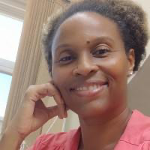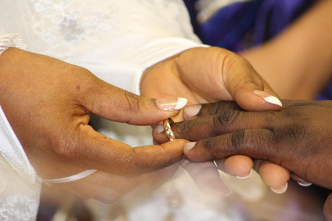Call for more Jamaicans to formalise relationships despite challenges
Amidst a steady decline in marriages in Jamaica, attorney Philippa Davies reminded several church leaders recently that society’s oldest social institution is the country’s best hope to reduce violent crime, raise stable children, and reduce societal ills.
Davies, who was one of three panelists during a discussion on Sex and Sexuality organised by the Caribbean Christian Leadership Network on November 2, expressed concern that many were abandoning the Judeo-Christian or Biblical view on sexuality. She said the matter of human sexuality for the Christian church is a settled matter, as God made male and female, and He commended that they enjoy sex within the confines of marriage.
“I’m not advocating that marriage is the panacea for all of our social and economic problems. We are imperfect beings living in an imperfect world, but the fact [is] that marriage does constitute an important foundation for a healthy society because of the demonstration of commitment between man and woman and the benefits to children and society,” said Davies, founder of marriagematters#ja.
Davies made the point in response to the view shared by Anglican priest Sean Major-Campbell regarding whether cohabiting couples were living in sin.
“I believe that marriage is about commitment and love and that there are persons who have not gone into a church in a long white dress and exchanged ring and vows, but they are in a much more committed relationship and blessed by God in that relationship, and no less than some persons who have exchanged the vows and rings,” he responded.
Davies, however, maintained that cohabiting relationships are at risk for higher rates of infidelity and domestic violence. She asserted that for the good of society, a marriage between one man and one woman is the best foundation and a template for sexual unions.


The lawyer’s push for marriage comes amidst declining interest in the institution and a spike in cohabitation relationships worldwide. Marriages have been trending downward over the past decade. In Jamaica’s case, for example, 21,692 people tied the knot in 2009, whereas only 16,719 sought to formalise their unions in 2018.
According to a report by CNBC, almost 90% of the world’s population now lives in countries with falling marriage rates. In the U.S., marriage has declined by 60% since the 1970s, while the median age for first marriages has increased for both men and women. This means that even where marriage is pursued, both men and women are delaying tying the knot.
Meanwhile, cohabitation is now the preference for many. This is an arrangement where two people are not married but live together. The US Census Bureau estimates that the share of young adults between the ages of 18 and 24 living with an unmarried partner went up from 0.1% to 9.4% over the period 1968-2018. Also, according to a survey from Pew Research, today most Americans favour allowing unmarried couples to have the same legal rights as married couples. According to CNBC News, in the UK, for example, 85% of people who get married cohabit first.
The matter of cohabitation versus marriage sparked an intense discussion among the other panelists, which included former dean of studies and lecturer at St. Michael’s Theological College, Dr. Anna Kasafi Perkins, and church elder and former University of the West Indies (UWI) Professor Dr. Brendan Bain.
Perkins reminded the group that the Jamaican law recognises unions of five years and reiterated Major Campbell’s stance that such a couple is in a monogamous committed relationship, although they haven’t made their union official in a church setting. Dr. Bain, who has been married for 51 years, said there was a need for more research on marriage in the Jamaican/Caribbean context.
Davies agreed that there is not enough data, but she pointed out that there are studies available in Jamaica from which the information about the importance and the difference that married unions make can be extrapolated. One such is the Birth Cohort Studies which was led by Professor Maureen Samms-Vaughan. This study tracked the development of children over several years and presented comparative data on varying factors, such as the home and family circumstances of the children. It looked at their cognitive development and academic progress, among other things. Other local studies have examined different types of relationships, including cohabiting, common law, married, and visiting relationships. It was found that there is stronger fidelity in marital relationships compared to non-marital unions. There is also information from prominent anthropologist Professor Herbert Gayle. Davies noted that Professor Gayle had studied the profiles of boys and girls drawn into the gang culture and also looked at a description of the family profile from which they emerged.
“The Judeo-Christian or Biblical worldview on sexuality, which I advocate, is good; in fact, it is very good, and that’s what God said in the beginning when he created the heavens and the earth and everything in it. He made two sexes, male and female, equal in value, but distinct and complementary, and that complementarity is best on show to the world in a one-of-a-kind relationship called marriage,” Davies said.

